Egyptian: oldest recorded language of the third millennium BCE

The Egyptian language is one of the oldest recorded languages in the world, spanning several millennia. The earliest examples of the language date back to the third millennium BCE. The language has a rich history that has evolved over time, with significant changes occurring during different historical periods. This blog post will focus on the history of the Egyptian language during the Old Kingdom period of Egypt.

DEVELOPMENT OF THE EGYPTIAN LANGUAGE
The Old Kingdom period, which lasted from around 2686 BCE to 2181 BCE, was a time of great development for the Egyptian language. During this period, the language began to take on its characteristic features, including the use of hieroglyphs as a writing system.
One of the most significant developments of the Old Kingdom period was the emergence of the Egyptian script. The earliest examples of hieroglyphs date back to around 3200 BCE, but it was not until the Old Kingdom period that the script became widespread and standardized. The Egyptians used hieroglyphs to write on a variety of surfaces, including papyrus, pottery, and rock. The script was developed to convey religious and administrative messages, and it became an essential part of Egyptian culture.
The Egyptians used their language to record their history, beliefs, and customs. During the Old Kingdom period, the language underwent significant development, including the emergence of new words and grammatical structures. The language was further enriched by the development of literature, including poetry, proverbs, and hymns.

- Early Development of Egyptian (2690 – 1550 BC):
During this period, hieroglyphs were used as a form of writing for official documents and religious texts. The earliest known examples date back to around 2700BC and are found on monuments such as tombs or temples. This early version was mainly spoken by royalty and priests but eventually spread throughout society due to increased trade between different regions.
- Middle Kingdom Period (1550 – 1069 BCE): During this period, there was an increase in literacy among commoners which led to more widespread use of hieroglyphic writing. Additionally, new forms of literature began appearing during this era including poetry and stories about gods or kings from earlier times. These works helped shape the development of formalized grammar rules and literary conventions that would be seen later on in other cultures too.
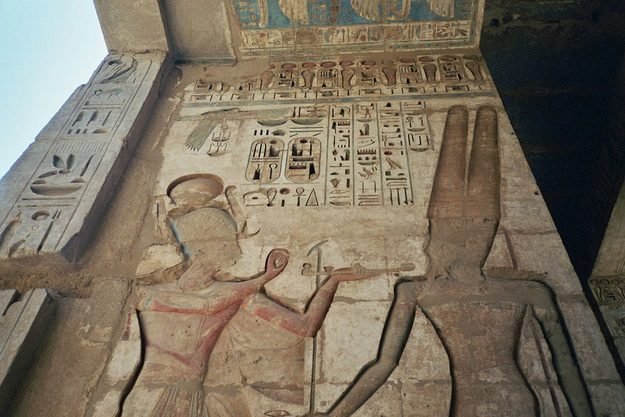
- Late Period (1069 – 332 BCE): By now, hieroglyphics had become less popular amongst everyday people who preferred using simpler scripts like demotic instead which allowed them to communicate faster without having knowledge about complex symbols or characters associated with ancient writings systems. However, it still remained important for religious purposes until Alexander’s conquest when Greek became dominant language across much Egypt’s territory.
- Modern Era (332 BCE onwards): After Alexander’s death, Egyptians adopted Coptic script which combined elements from both Greek alphabet plus some native sounds specific only to their own culture. It also included diacritics marks allowing readers distinguish between words pronounced similarly yet spelled differently. With introduction Arabic after Islamic invasion 7th century AD, many loanwords entered into local dialect making up what today considered “Modern Standard Arabic” commonly used all over world even outside Arab countries themselves.

USE OF EGYPTIAN LANGUAGE
During the Old Kingdom period, the Egyptian language was used primarily for religious and administrative purposes. The majority of surviving texts from this period are religious in nature, including funerary texts such as the Pyramid Texts and the Coffin Texts. These texts were written on the walls of tombs and were intended to guide the deceased through the afterlife.
In addition to religious texts, the Egyptians also used their language for administrative purposes. The earliest examples of administrative documents date back to the Old Kingdom period and include records of taxes, land ownership, and other legal matters. The language was also used to write letters and to keep accounts.
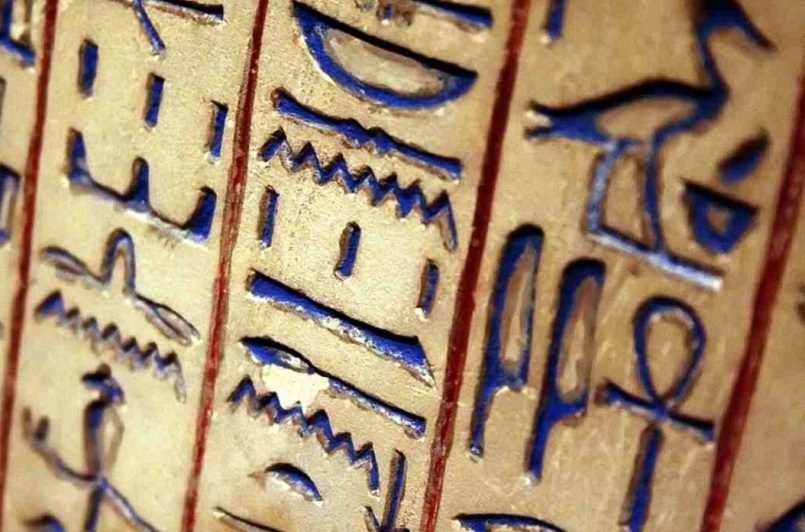
DECLINE OF EGYPTIAN
While the language was spoken for thousands of years, it began to decline after the introduction of Arabic in the 7th century. Today, only a few people in Egypt speak it fluently, and it is mainly used in religious contexts.
- CAUSES OF DECLINE:
The decline of Egyptian as a spoken language can be attributed to several factors. Firstly, the introduction of Arabic as the official language of Egypt in the 7th century played a significant role in the decline of the language. Arabic replaced Egyptian in administration, education, and daily life, leading to a decrease in the number of people speaking Egyptian. Additionally, the use of hieroglyphs declined in favor of the Arabic script, which further contributed to the decline of the language.
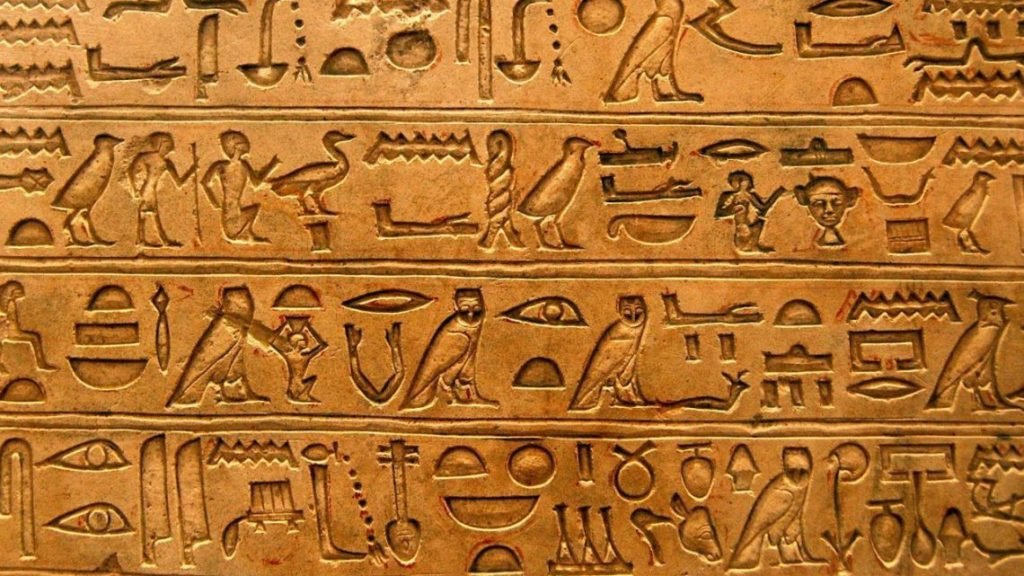
Another factor that contributed to the decline of Egyptian was the invasion of Egypt by foreign powers. Egypt was colonized by the Assyrians, Persians, Greeks, and Romans, who brought their own languages and writing systems. This led to a further decline in the use of Egyptian as a spoken and written language.
CURRENT STATUS
Today, only a few people in Egypt speak Egyptian fluently, and it is mainly used in religious contexts. Coptic Christians in Egypt still use the language in their religious ceremonies, and some scholars study the language in order to read ancient texts. The language is also used in the study of Egyptology, which is the study of ancient Egyptian history, language, culture, and religion.
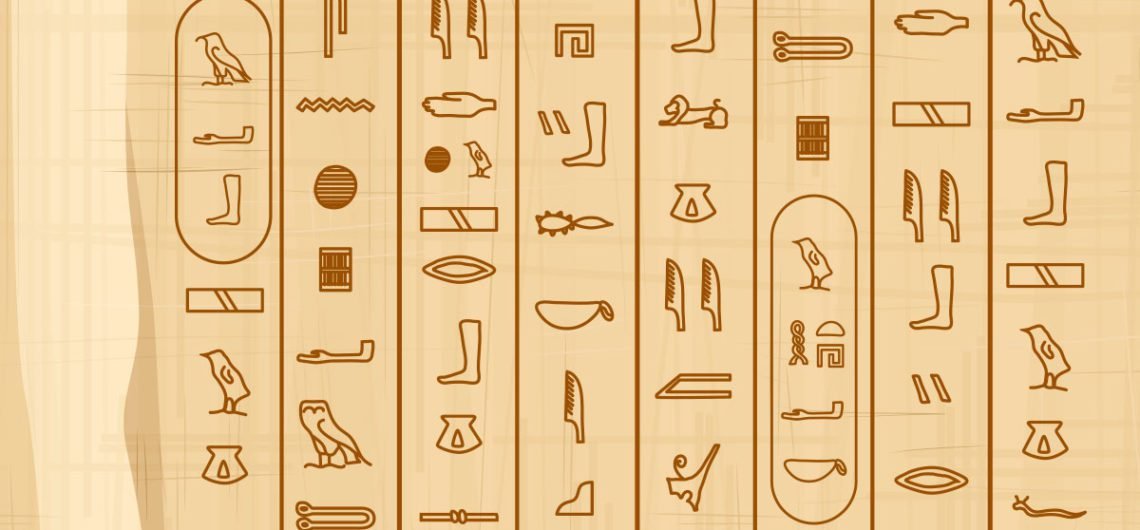
Efforts are being made to preserve the language. The Egyptian government has established a Center for the Study of the Egyptian Language to promote the study of the language and preserve it for future generations. This center offers courses in the language, and its scholars work to document and study the remaining sources of the language.
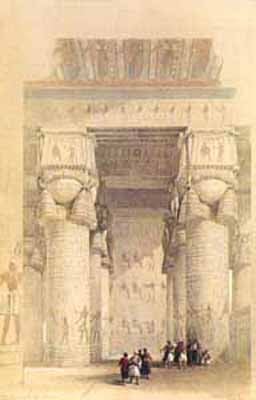
CONCLUSION
The history of the Egyptian language is a fascinating subject that spans thousands of years. During the Old Kingdom period of Egypt, the language underwent significant development, including the emergence of the hieroglyphic script. The language was primarily used for religious and administrative purposes, with surviving texts from this period including funerary texts and administrative documents. Despite its ancient origins, the Egyptian language continues to be studied and revered to this day.


